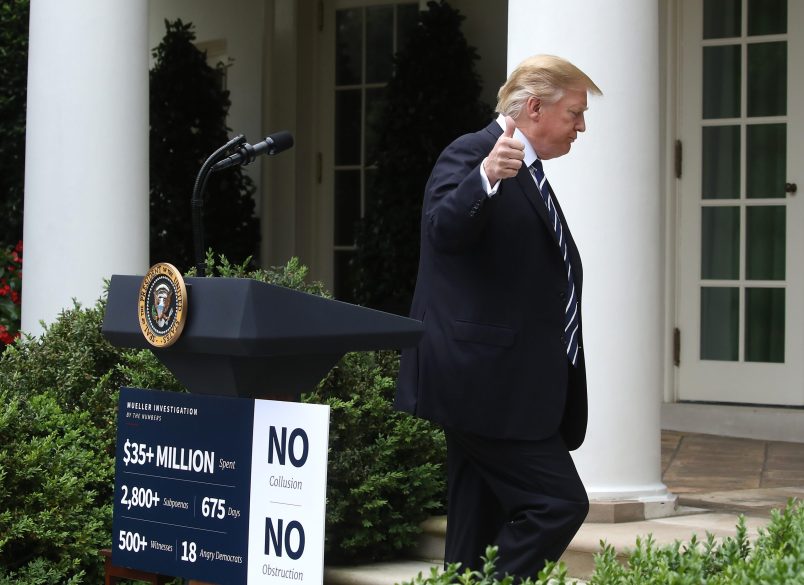The Jan. 6 Committee cautioned the Supreme Court in a Thursday filing that allowing former President Trump to block access to White House records would amount to the court extending monarchical power to a former executive.
“Accepting Petitioner’s arguments would result in a remarkable expansion of a former President’s interests—at the expense of the incumbent President’s Article II authority—contravening not only GSA, but also the Constitution,” the panel wrote. “The Constitution’s text and structure reflect the Founders’ rejection of monarchy and perpetual power.”
Trump, the committee noted, seemed to verge on suggesting that he, in some ways, remains president by arguing that he can claim executive privilege over the Jan. 6 records sought by the Committee.
“His unsupported claim that disclosure will cause irreparable harm to the Executive Branch is belied by the determination of the President—the person best suited to make that determination—that it will not,” the panel wrote, referring to President Biden’s decision not to claim privilege over some documents sought by the committee.
The arguments came after President Trump re-upped his argument that the January 6 Committee’s investigation is illegitimate this week, saying that Congress is really trying to have Trump arrested over the Capitol insurrection.
Trump told the court on Wednesday that the panel’s real goal is to set the stage for a “criminal prosecution” of the former President.
The Supreme Court litigation is likely the last stop in Trump’s battle to seal off White House records generated during his time in office from the Jan. 6 Committee. Trump sued to block their release from the National Archives in October, and has faced successive losses at the district court and appellate levels since then.
His argument is nearly monarchical in its reach, claiming that former presidents have the right to seal off records pertinent to investigations into wrongdoing that took place during their time in office.
The records at issue in this case are notes compiled by senior White House officials during the Jan. 6 insurrection, as well as other memoranda and executive branch documents from the run-up to and during the attack itself. So far, the courts have only struck down Trump’s challenge to the first two tranches of documents — he’ll be able to file challenges to further document deliveries from the National Archives.
In the Wednesday filing, Trump argued that an interview that panel chair Rep. Bennie Thompson (D-MS) gave to the Washington Post constituted “evidence” of the investigation’s true motive: locking Trump up.
“That dereliction of duty causes us real concern,” Thompson had told the Post, referring to Trump’s failure to discourage his supporters during the insurrection itself. “And one of those concerns is that whether or not it was intentional, and whether or not that lack of attention for that longer period of time, would warrant a referral.”
Thompson, Trump said, “admitted his goal of uncovering information that could result in a criminal referral to the Department of Justice.”
He claimed that the so-called law enforcement motive constitutes an impingement on the executive branch’s authority by Congress. (The executive branch, currently controlled by President Joe Biden, has not objected.)
“The Committee cannot make a mockery of Congress’s constitutional mandate that its requests and investigation be supported by a ‘valid legislative purpose,'” Jesse Binnall, a Trump attorney, wrote in the filing. “It cannot embark on what is essentially a law enforcement investigation with the excuse that it might legislate based on information it turns up in the course of the exploration.”
Congress routinely refers people for criminal proceedings, based on evidence it uncovers in the course of congressional investigations or if it holds someone in contempt, as it did with former Trump staffers Steve Bannon and Mark Meadows.
Binnall went on to call the probe an “abuse of legislative power,” suggesting that if the court were to allow the panel to access federal records about the insurrection, such abuses would “fester and grow.”
Rep. Liz Cheney (R-WY), one of two Republicans on the panel, also said this month that the panel is investigating whether to refer Trump for criminal obstruction of Congress.







So he wants to seal off his evidence of crimes . Because he was innocent?
Boss giving marching orders…
"Christ, what an asshole." – Lucy van Pelt
This just smacks of guilt. He knows he’s guilty. Not that he feels bad, but he doesn’t want to go to jail.
The most innocent man ever in American history, if I recall correctly.